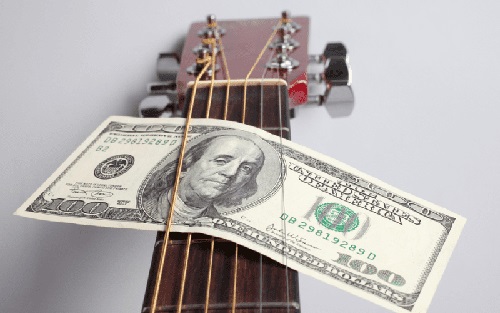
Let’s talk about performance royalties. Many people know about mechanical royalties but, you might be unaware that there is another type of royalty. It allows you to make some money playing your music live. You wonder how? Thanks to the payments called performance royalties. They may be a valuable source of revenue for an artist, however, they often get forgotten. You and your publisher can both benefit from this money. So let’s take a closer look at the topic and figure out how to earn them.
Note: There are two components to any copyright payment. One protects the initial recording and the other the composition of the track.
What do performance royalties imply, and how do they work?
Performance royalties are the license fees paid to composers and publishers when their song is played or transmitted publicly. It includes but is not limited to online streams, radio broadcasts, live shows, or concerts. Now, when you know what they are and in what cases they are paid, let’s talk about how they are paid. You are entitled to receive these fees whenever your music is played live.
How does it work?
Performance rights organizations (or PRO) are obliged to collect them and pass them to composers and distributors.
Let's examine a couple of cases.
Concerts
Oddly enough, many musicians don’t know that they are entitled to receiving the payment every time they give a live show, whether they play in clubs or elsewhere. If you want to get the payment, all you have to do is let your PRO know that you are giving the concert and register it with them. The final sum will depend on the venue, as larger venues bring more money.
Radio broadcast
Broadcasting your song on the radio can bring you not only new fans but also some money. If a broadcasting station plays your track, you can earn performance royalties. Radio stations decide on the music they want to broadcast. Then, they inform the performance rights organization about the number of plays a song received and pay royalties according to that number. The fee is determined by the size of each particular station.
Download a free pdf containing all useful information on music promotion that you can always keep with you!
Public Broadcasts
Your track falls under the public broadcast category if it is played by a private company (or business) such as a cafe, or a grocery shop. In that case, the process is very similar to radio broadcasting. The business reports back to the PRO, and the organization pays the artists and distributors.
Online streaming
Every time someone listens to your song on any streaming platform (such as Spotify), you are entitled to receive royalties, because according to the law, when a track is streamed a performance takes place. However, with online streaming, it is not that easy. It resembles the standard procedure when a streaming service pays to the PRO. However, it must also pay mechanical royalties which are always paid if music is streamed or purchased. To get both performance and mechanical royalties, make sure you're registered with a reputable distributor.
How it usually goes?
We have already discussed the process, but let’s mention some details to add clarity. When your song is performed live, the performance rights organization (such as Broadcast Music Inc. or American Society of Composers, Authors, and Publishers) claims license fees, then gives this money to composers and distributors. These fees are usually divided into two components: one is paid out to the artist, the other to the publisher. To put it another way, if you compose music, you should join the PRO to receive your part of the payment. However, some publishers collect these payments for their clients. Although the entire procedure may appear complex and puzzling, the basic concept is always the same. The PRO collects the money and pays it out to the distributors and the artist. You will figure out all the details as long as you understand the basic principle.
